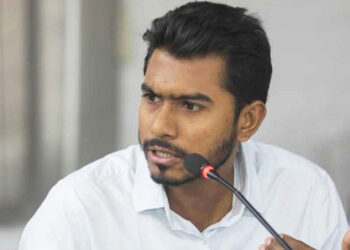Even though Bangladesh’s tourism and hospitality sector is growing fast, there’s a serious shortage of skilled workers. Universities aren’t producing enough graduates trained for real-world jobs in this field. Many hotel and tourism students end up choosing other careers due to low salaries and lack of growth.
As a result, top positions in hotels and tour companies are often filled by foreigners. Experts say without urgent changes in training and education, Bangladesh may miss out on the full potential of its tourism industry.
Rapid Growth in this Sector But Not Enough Trained People
Bangladesh’s tourism and hospitality industry is growing fast, but there’s a major problem: a shortage of skilled workers. While there’s huge potential for expansion, the country’s universities and training institutes are not producing enough job-ready graduates. Because of this, the future of this promising sector is under serious threat.
According to Bangladesh Tourism Board’s National Tourism Human Capital Development Strategy, about 2.9 million people worked in the sector in 2022. By 2030, the demand will rise to 4.3 million, a 45% increase.
Why Graduates Are Avoiding the Tourism Sector
Industry experts warn that if the education and training systems don’t improve soon, Bangladesh won’t be able to benefit from this growth. Every year, thousands of students graduate in tourism studies but nearly 80% of them don’t work in the field.
Why not? They say:
-
Low starting salaries
-
Poor career growth
-
Limited job benefits
Because of these reasons, many prefer other careers with better pay and job security.
Foreign Professionals Filling the Gap
As a result, many luxury hotels, airlines, and tour companies in Bangladesh hire foreign professionals in top-level positions.
A general manager of a five-star hotel in Gulshan shared that:
“We’re facing a major shortage of skilled workers in leadership, finance, and culinary roles. Our interns and entry-level staff are falling behind because the curriculum doesn’t cover crucial topics like revenue management, cost control, or digital hospitality marketing.”
He added that hotel owners and global brands still don’t fully trust Bangladeshi professionals for leadership roles.
Education System Fails to Match Industry Needs
Research by the Tourism Board also found alarming weaknesses:
-
27% of tourism workers lack basic communication skills
-
22% of restaurant workers are poor in customer service
-
27% of tour operators can’t speak any foreign language, which is a big problem when dealing with international visitors
Taufiq Rahman, CEO of Journey Plus, explained:
“Many entrepreneurs enter this sector but can’t find trained staff. We lack skilled people in operations—especially in sales, marketing, travel planning, and client communication. It’s hardest to find tour guides who speak foreign languages.”
According to projections, by 2030, the industry will need:
-
407,000 workers in accommodation
-
2.4 million in restaurants and cafés
-
263,000 in entertainment
-
90,280 in tour operators and travel agencies
-
Over 100,000 in buses, boats, and airlines combined
-
And 100,000 more in amusement parks, where annual ticket sales have already crossed 60 million
Mismatch Between Education and Industry
Currently, 35,000 students graduate annually in tourism, but the sector needs 150,000 to 200,000 skilled workers every year.
Read More: BGMEA President Calls U.S. Tariff Cut a Big Relief for Bangladesh Exports
Dr. Md. Anwar Hossain Bhuiyan, associate professor at National University, pointed out:
“Government universities rarely update their syllabi. There’s also limited practical training, so graduates aren’t prepared for the market.”
He added that salaries are too low:
“In government or banking jobs, a graduate may earn 30,000–40,000 BDT, but in tourism, they often start at 15,000–20,000 BDT. This discourages many.”
He also emphasized the need to teach not only English but also Arabic, Mandarin, and other global languages.
One graduate from the University of Dhaka said he chose a government bank job over a tourism career because of the low salary in the sector.
The Real-World Training Gap
There are currently 52 institutions offering tourism education in Bangladesh, including 25 universities and 11 affiliated colleges. However, diploma programs are producing more workplace-ready graduates than traditional universities.
Around 8,000 diploma holders enter the market each year, while universities still focus mostly on theory.
Taufiq Rahman added:
“Sadly, 80% of university graduates don’t stay in this field. We actually need three times more people than we currently have. But due to a lack of skills, many leave the industry.”
Graduates Expect More Than Reality Offers
Abu Taher Mohammad Jaber, CEO of Bangladesh Tourism Board, said:
“There’s a huge gap between what graduates expect and what the industry offers. Most university students aim for management roles from day one, but when hotels ask them to start at the front desk or housekeeping, they refuse.”
In contrast, diploma graduates who go through 4 months of theory and 2 months of practical training perform well in entry level roles.
Mohiuddin Helal, Chairman of the Tourism & Hospitality Industry Skills Council, said:
“We need more quality educational and training institutions. It’s very important to establish a connection between graduates and the industrial sector, and that’s exactly what we are working on,” he added. “In the next three years, we aim to train around 7,000 workers, some of whom will find employment locally, while others will have opportunities abroad.”
He shared that the council plans to train around 7,000 skilled workers in the next three years, some of whom will also find jobs abroad.
To unlock the full potential of its booming tourism industry, Bangladesh must urgently bridge the gap between education and employment. This means revamping training programs, improving salary structures, and helping young professionals see a future in hospitality.
If the country acts now, it can transform this sector into a powerful engine for jobs, growth, and international recognition. Bangladesh stands on the edge of a tourism breakthrough. With strong government support, smarter education models, and real-world partnerships between institutions and industry, the nation can build a homegrown, skilled workforce that doesn’t just meet demand but leads it.
The path forward is clear now it’s time to invest in people. Young graduates are ready to learn, businesses are ready to grow, and the global market is watching.
What’s missing is a system that connects them all a system that values practical training, offers fair pay, and shows that hospitality is a career worth building. If Bangladesh invests in its people today, the rewards jobs, growth, and global respect will last for decades.


















